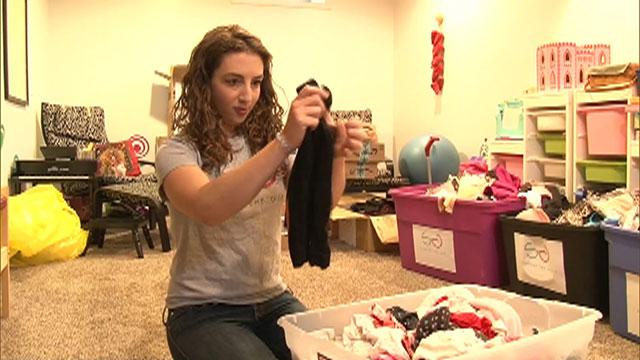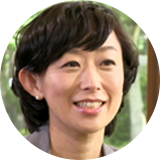Marie Kondo, aka KonMari, is by far the most famous Japanese in the US today and is known as the "decluttering guru" or "organizing queen." Her book, "The Life-Changing Magic of Tidying Up – The Japanese Art of Decluttering and Organizing" is a worldwide best seller. Her own reality TV show was launched on Netflix earlier this year, and she has been invited by popular American presenters such as Ellen DeGeneres and Steven Colbert to be a guest on their show. Charity organizations are getting a boost in donations due to the "KonMari effect."
Even more surprising is that she does all this in Japanese with an interpreter by her side. After my friends spotted her in Los Angeles, I decided to ask her team for an interview.
We met in her office -- a mansion with a beautiful garden and pool in West Hollywood -- in late February.
"Americans own so many things, and they are not able to control their lives," she said. "They want to control their clutter and clear their mind. I did not think the KonMari method would become so popular."

Rachel Hagel is 37 years old and lives with her husband and daughter in Indianapolis, Indiana. Her house is very spacious in the eyes of a Japanese, and it has a basement full of clutter. "I think one of my favorite parts, more than ‘sparking joy,’ is being able to thank something and move from there," Hagel says of the KonMari method.
Kondo advises taking one item at a time, holding it in your hands, and keeping only items that spark joy. When departing with those that do not, she advises thanking them. Kondo admits she had a hard time explaining the concept of thanking an item to Americans, although it's a normal concept in Japan.
She says Americans appear to see things as things and nothing more. She advises her clients to review their ties to objects and think about how each one made them happy, and what they learned from it.
"I place importance on using words, such as thanking clothes that they barely got to wear and telling the item that it was not for them. The process makes them feel less guilty for parting with things and positive about decluttering," she says.

I was curious to hear what she thought about some criticism she has gotten recently. In February, writer and journalist Barbara Ehrenreich tweeted, "I confess: I hate Marie Kondo." She continued, "It’s OK with me that she doesn’t speak English to her huge American audience, but it does suggest that America is in decline as a superpower."
The comment was taken by some as racist and xenophobic. Kondo explains rather quickly that she would like to do her program and communicate in English, but can only convey her message in a deep way in her mother tongue. She also says that kneeling to communicate with the house is something she has been doing as an organizing consultant for a long time, and she isn't doing so to display Japanese-ness.
She has also been criticized for allegedly saying people should only own up to 30 books. Some suggest that it could be because she doesn't like books, or because Japanese homes are too small. When I asked Kondo about this, she fired back.
She says it's a misunderstanding and she has never advised against having more than 30 books. She thinks a comment in which she said she currently has only 30 books was misunderstood.
She says, "I don't think it was a bad thing, because it got people talking about owning books. They probably discovered new values, such as their love of books, by sharing their views on decluttering."
So, what does Kondo think is the reason for her popularity? She says, "I happened to introduce my method to people who wanted to tidy and cherish things that are precious to them, but did not know how to."
Kondo could change the way Americans buy things and store clutter. She may be tiny in height, but her influence is huge.

